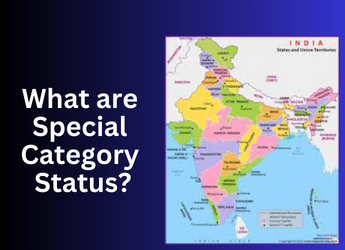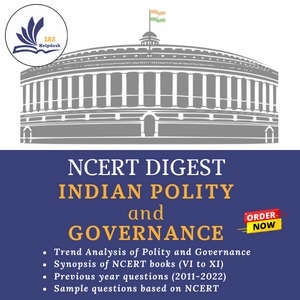What are Special Category Status?
Description
Special Category Status
Description: Special Category Status was a classification granted by the Centre to assist the development of States that faced geographical or socio-economic disadvantages. Read about the Special Category Status, requirements, benefits, etc
The special category status was introduced in 1969 on the recommendations of the Fifth Finance Commission to benefit certain backward states having hilly terrains, strategic international borders, and economic and infrastructural backwardness.
To be able to get the status, states have to fulfill the following requirements:
- They need to have hilly and difficult terrain
- They need to have low population density and /or a sizeable share of the tribal population
- They must be in a strategic location along borders with neighbouring countries
- They must be economically and infrastructurally backward
- They must have non-viable nature of state finances
Which states have the Special Category Status? Currently, eleven states have the Special Category Status in the country including Assam, Nagaland, Himachal Pradesh, Manipur, Meghalaya, Sikkim, Tripura, Arunachal Pradesh, Mizoram, Uttarakhand, and Telangana. These states have been accorded the status as they share borders with other countries. Odisha lacks that requirement. Telangana, the newest state of India, is accorded the status as it was carved out of another state - Andhra Pradesh, which hit the state's finances.
Benefits states confer with special category status:
States which are granted special category status enjoy several benefits.
The central government bears 90 percent of the state expenditure on all centrally-sponsored schemes and external aid while rest 10 percent is given as loan to state at zero percent rate of interest.
Preferential treatment in getting central funds.
Concession on excise duty to attract industries to the state.
30 percent of the Centre's gross budget also goes to special category states.
These states can avail the benefit of debt-swapping and debt relief schemes.
States with special category status are exempted from customs duty, corporate tax, income tax and other taxes to attract investment.
Special category states have the facility that if they have unspent money in a financial year; it does not lapse and gets carried forward for the next financial year.
Differences between Special Category Status and Special Status:
Special Status is guaranteed by the Constitution through an Act that has to be passed by 2/3rds majority in both the houses of Parliament. For instance, Jammu and Kashmir enjoys a Special Status as per Article 370. Jammu and Kashmir also enjoys Special Category Status. It is also the only state in the country to have a separate constitution. Many laws that are functional in the rest of India do not extend to the state. Apart from this, the Government of India can only interfere in issues such as, Defence, Foreign Affairs, Finance and Communication matters. Special Category Status (SCS) is totally different from the Special Status.
The Special Category Status (SCS) is granted by the National Development Council, which is an administrative body of the government. It is a classification that the Centre gives to a state to assist in the development of states that face geographical and socio-economic disadvantages. In 1969, SCS was for the first time granted to Jammu and Kashmir and 10 more states were added over the years. The National Development Council (NDC) further laid 5 guidelines to grant the special status.
The Special Category Status to Andhra Pradesh would entitle it to receive special benefits. These benefits would help the state attract more investment, which in turn would revive its economy, which according to the state, suffered a huge loss after its capital Hyderabad was given to Telangana. The Central Government has however said that Andhra Pradesh doesn’t qualify for Special Category Status as it doesn’t fulfil any of the conditions stipulated by the National Development Council (NDC). The Centre has therefore offered Andhra Pradesh a special package that it says is equivalent to the benefits of the Special Category Status. How to Prepare for IAS | FAQs on UPSC | Up-to-date Current Affairs | Latest Videos & Updates | Article: What are Special Category Status?

